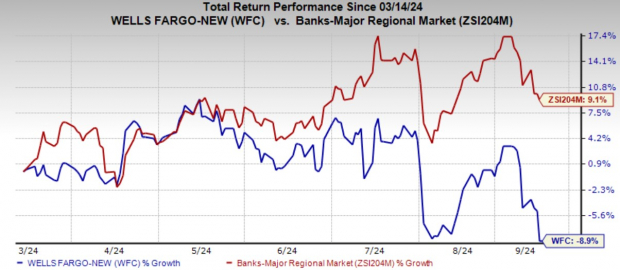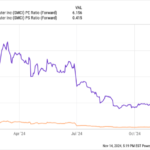Wells Fargo & Company experienced a 4% stock dip after formally acknowledging an agreement with the Office of the Comptroller of the Currency aimed at addressing deficiencies in its anti-money laundering (AML) program and sanctions risk management.
The agreement highlighted weaknesses in the bank’s internal controls related to anti-money laundering practices, suspicious activity reporting, and customer due diligence. Wells Fargo’s efforts to resolve this issue were outlined in its second-quarter Securities and Exchange Commission filing, emphasizing its commitment to addressing regulatory concerns.
This move represents a significant step for Wells Fargo in bolstering its AML and sanctions risk management protocols, aligning with the bank’s ongoing initiatives to fortify its risk management framework and ensure compliance with regulatory standards.
The management at WFC affirmed their dedication to fulfilling the terms outlined in the agreement promptly, emphasizing their commitment to meeting regulatory obligations.
Enhancing AML Practices: Details of the Agreement
As part of the agreement with the OCC, Wells Fargo is required to establish a Compliance Committee to oversee the bank’s adherence to the specified terms. The focus areas for improvement include front-line risk management, independent testing, customer identification, and enhancing mechanisms for detecting suspicious activities.
Furthermore, the agreement mandates enhancements to the bank’s AML and sanctions risk management procedures, along with gaining OCC approval for evaluating the risks associated with new offerings. Wells Fargo is also required to notify the OCC before expanding any of these services.
Challenges Beyond AML: Additional Regulatory Issues
Wells Fargo has faced a series of regulatory challenges since September 2016, including penalties and sanctions like an asset cap imposed by the Federal Reserve.
In a separate litigation matter, the bank faced a class action lawsuit in July 2024, alleging mismanagement of its employee health insurance plan, resulting in overpayments by U.S.-based employees for prescription medications. A proposed class action lawsuit in June 2024 accused Wells Fargo of involvement in a $300-million Ponzi scheme, impacting thousands of investors, predominantly senior citizens.
Over the past six months, Wells Fargo’s shares have declined by 8.9%, contrasting with the industry’s growth of 9.1% within the same period.

Image Source: Zacks Investment Research
Wells Fargo currently holds a Zacks Rank #3 (Hold).
Scrutiny Across Financial Firms
In a separate case, The Toronto-Dominion Bank agreed to pay a $28 million penalty to the Consumer Financial Protection Bureau for credit reporting issues. The bank admitted to providing misleading information to consumer reporting agencies and failing to rectify these inaccuracies promptly.
Robinhood Markets, Inc., in a settlement with the California Department of Justice involving crypto withdrawals, is obligated to pay $3.9 million. The platform was accused of restricting customers from withdrawing cryptocurrency between 2018 and 2022, violating California laws.
The regulatory landscape continues to pose challenges for financial institutions, underscoring the importance of stringent compliance measures and risk management protocols.





